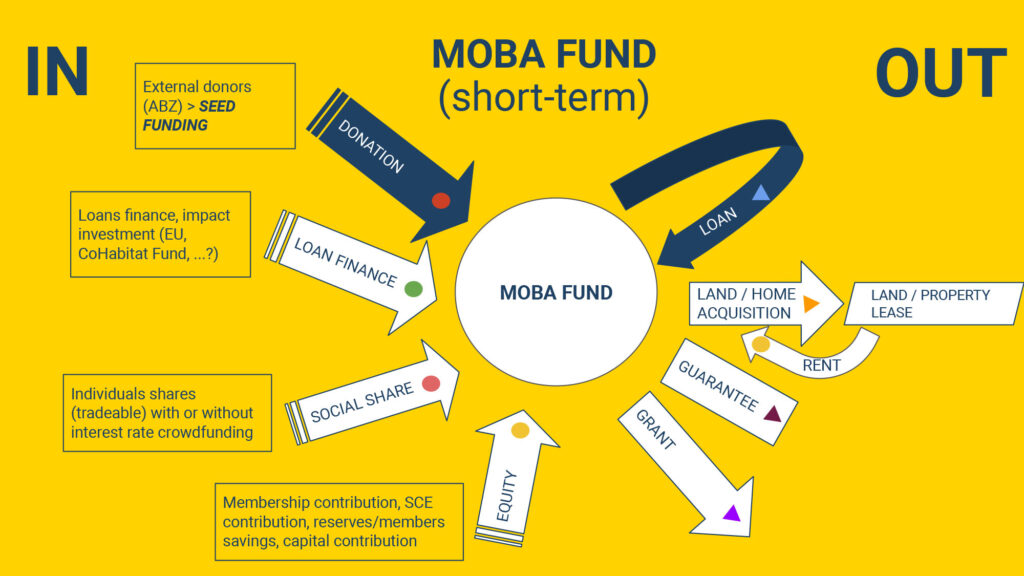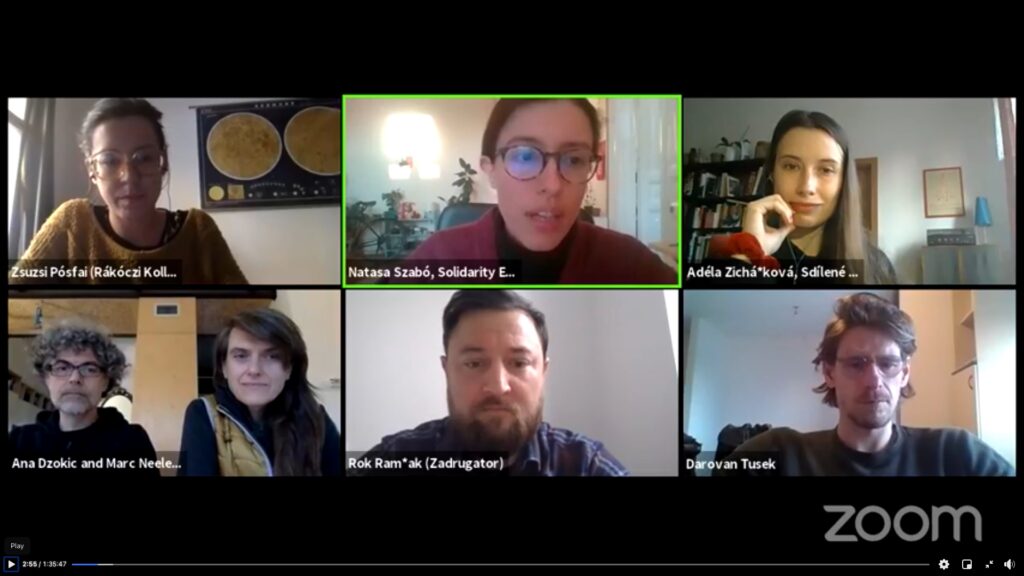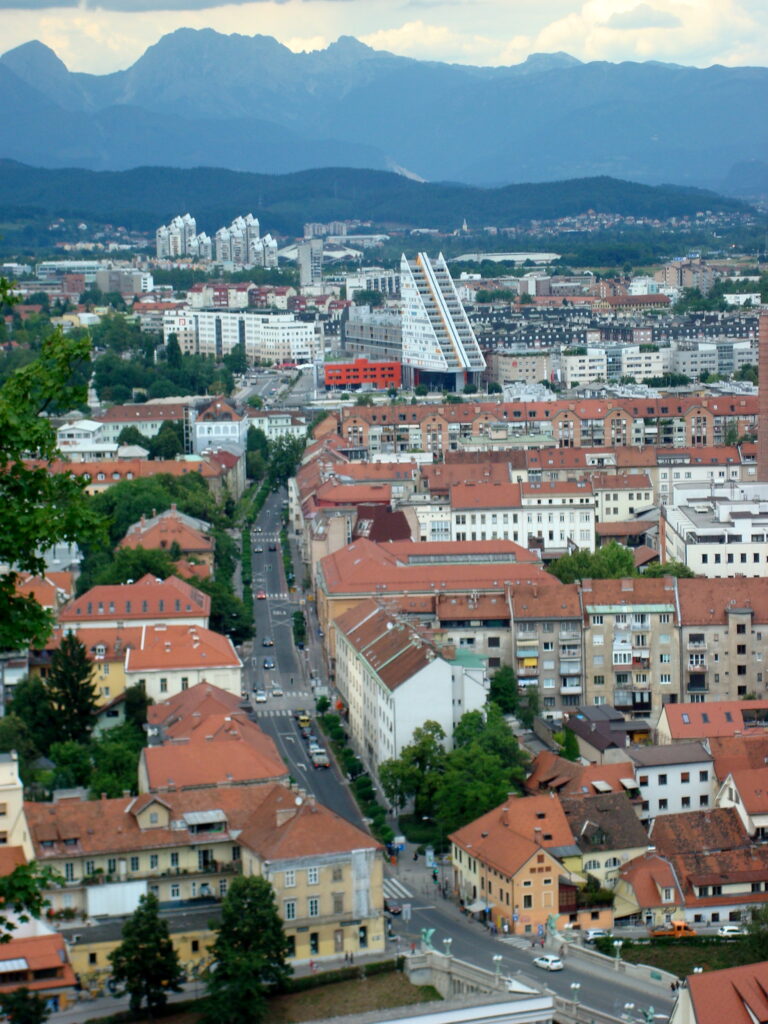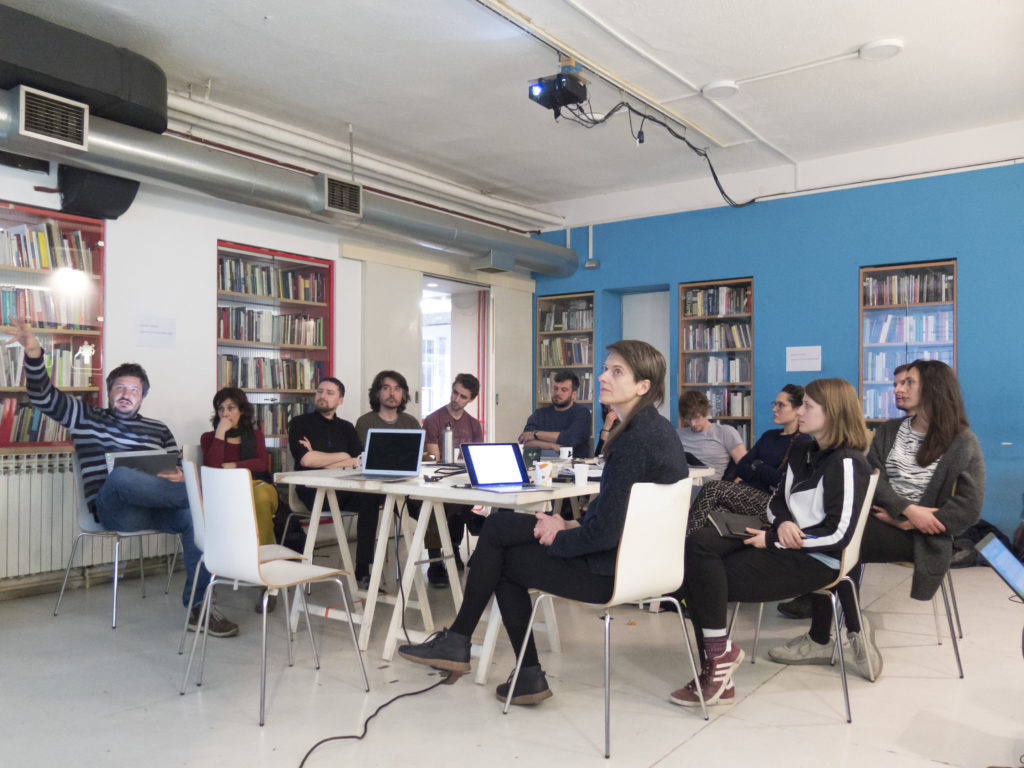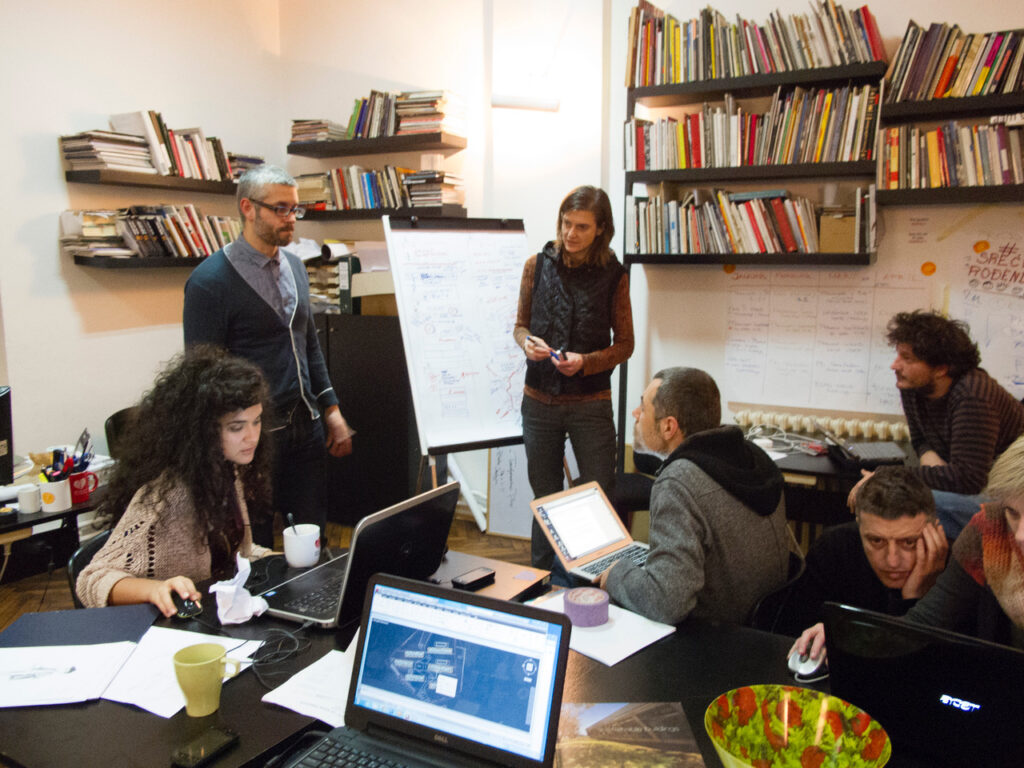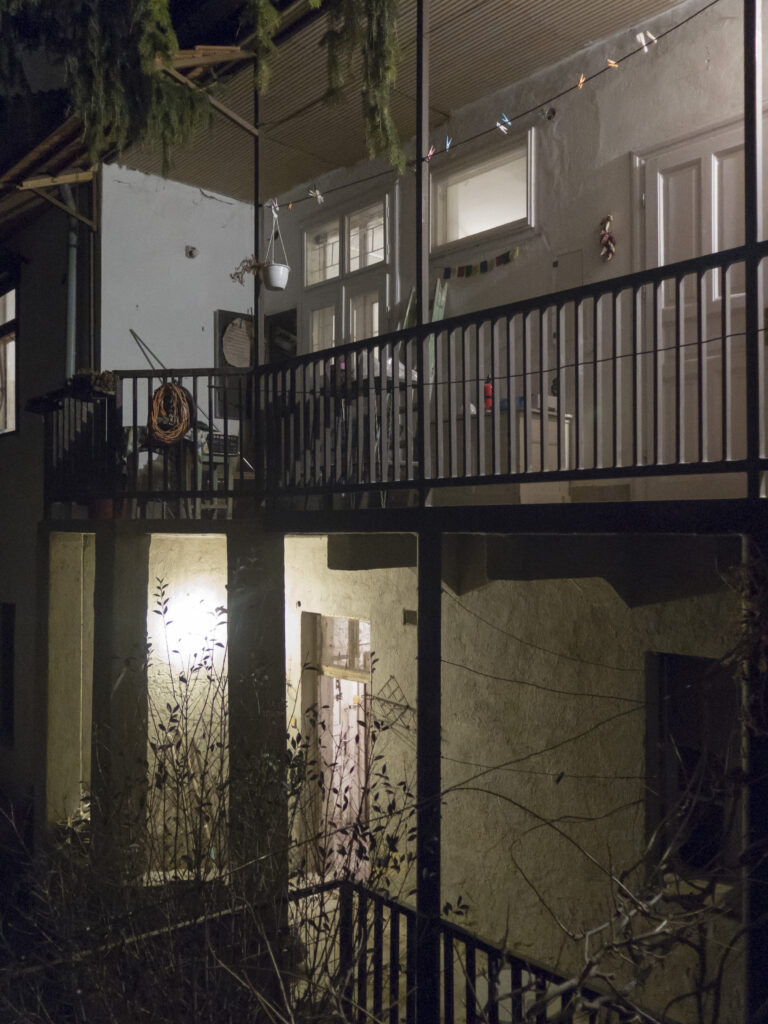Text by Anja Lazar & Rok Ramšak, originally posted by World Habitat
Anja Lazar and Rok Ramšak are members of Zadrugator, a housing co-operative in Ljubljana, Slovenia. Zadrugator is one of the pioneering co-operatives working together with others across Central and South-Eastern Europe as part of MOBA Housing SCE.
In most European cities, housing is becoming an increasingly big issue. The situation is especially alarming when it comes to affordable housing.
In Slovenia it is no different. With housing provision being almost exclusively in the domain of the free market, Slovenia has one of the highest proportions of housing that is not suitable for living – one-in-three (33%). And almost a third (30%) of families live in housing poverty. It’s becoming increasingly difficult for young people to gain independence with almost two in every three (64%) young adults between 18 and 34 still living with their parents – nearly double the European average!
This comes as no surprise due to the fact that Slovenia spends 10 times less on housing than an average European state, and a whopping 100 times less on housing construction. In fact, the state’s contribution to the construction of public housing has remained at a very stable zero for the last 10 years.
But how does this impact people’s everyday lives?
In the past years we have been discussing the housing crisis with students, people looking for their first apartment, young families and elderly people, who are struggling to find adequate housing in Ljubljana. We are summarising their stories using a fictional person who we have named Tina.
Tina is 34 years old and works in Ljubljana. She grew up in a smaller town but moved to study and has stayed there because it is one of the few places where it is possible to get a job. She applied for a student dorm, but even though her family is well below the median income, she was told that she’d need to wait at least half a year to move in because there are simply not enough. And because of poor public transport, the only option was a private apartment rented with three friends. Despite sharing a room, she worked around 20 hours per week and had to use her entire scholarship to cover the rent and living expenses.
In the last 10 years, she has moved at least six times. The owners would increase the rent or decide to start renting out through AirBnB. But she was quite lucky – she always found good flatmates and for the past five years, since working full-time, she has even been able to afford her own room.
Tina is earning the average Slovenian wage and is among the 30% of highest earners. But she is still spending over a third (nearly 35%) of her income on a small room in an apartment she shares with three other people. Lately, she finally started exploring other options.
After several months, she was not able to find an affordable apartment to rent on her own. The cost of an average sized single room apartment would be somewhere between €500 and €600 – this would be well over half (around 60%) of her income spent on housing costs.
Buying a home would be impossible. With only new luxury projects being built, the prices are so high that even if she could find a good deal for the apartment and a low interest rate for the loan, she would have to spend close to 70% of her income. And even if she dreams of a big promotion and a higher wage, she would simply not be able to save up enough to put down a deposit of at least €25,000.
She considered non-profit rental apartments, provided by national and municipal housing funds. But realised that for each apartment, there are dozens of families in need. Such a discrepancy in fact, that some funds started organising lotteries for applicants.
So, what is the alternative?
Unfortunately, there are no other existing alternatives in Slovenia, resulting in a lot of young people moving abroad or forced to live in apartments, and even more often, in single rooms that do not allow them a decent quality of life.
That is why, four years ago, we established Zadrugator, a housing co-operative. We want to address the lack and inaccessibility of decent housing and have always advocated for not-for-profit public housing provision. But as this requires, above all, significant political will, we have started looking for other, more community-based, grassroots alternatives.
Going through countless examples of housing mechanisms from around the world, we came to realise that not-for-profit rental housing co-operatives are our best bet.
Zadrugator based its model on successful co-operatives in Switzerland – namely More than Housing in Zurich, which we visited on a World Habitat peer exchange in 2017. They inspired us because of their accessibility to different social groups, high standards of living, and a high-level of resident and local community participation.
The Zadrugator model is truly a co-operative model, based on a joint investment by the members, the provision of the land by the municipality, a loan from the national housing fund and resources from external lenders or investors.
The future residents are members of the co-operative, owning shares and having full voting rights – but they won’t own their apartments. Instead, they will rent the apartments from the co-operative for a not-for-profit rent. Because of the very poorly developed housing sector in Slovenia, we estimate that the rent will be at least 20-30% lower than the market rent – and as market rents will surely rise in the future, the co-operative rent will stay the same.
We have made significant progress in developing the first pilot project. We are collaborating with Ljubljana’s local authorities, who are willing to host the co-operative housing development on public land, and advanced on finding funding possibilities. With the support of World Habitat, we have also developed the architectural design for the pilot project.
However, we are also facing many challenges in our hopes to start a strong and viable co-operative movement here in Slovenia. Our main issue is that housing co-operatives are not yet included in Slovenian housing law, which prevents us from working with public partners in a meaningful way and significantly inhibits our possibilities of providing affordable rent. But that is not denting our determination or our commitment to advocate for this to change, and to make community-led housing a reality. This will make good homes more affordable for ‘Tina’ and the countless others like her.
Image: Bryce Edwards (Creative Commons)

